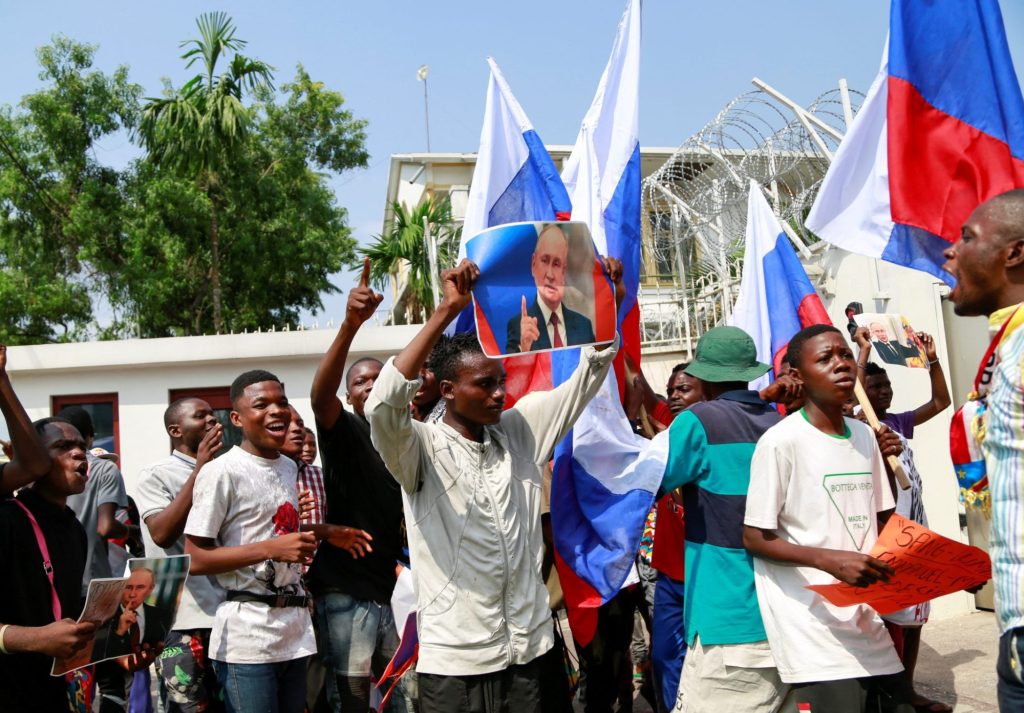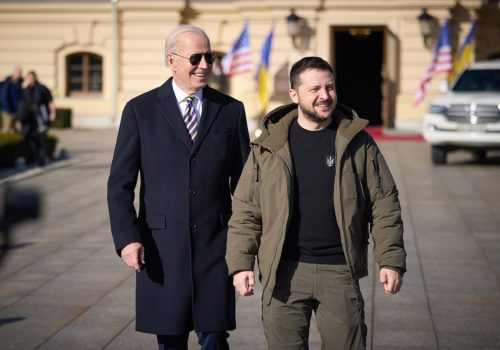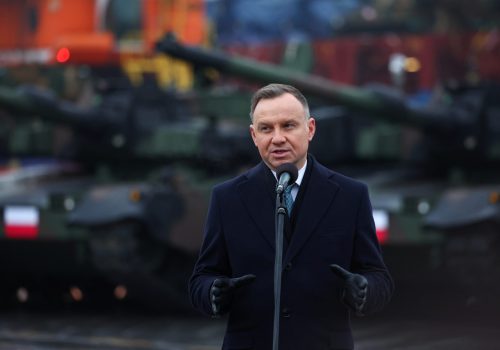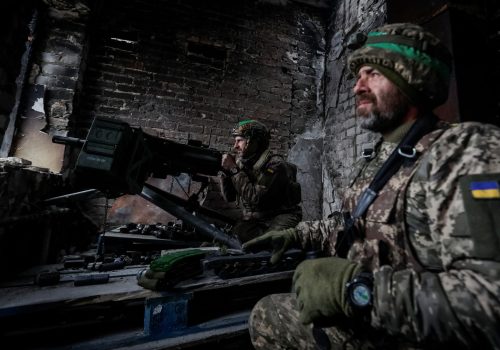More than one year since Vladimir Putin launched the full-scale invasion of Ukraine, international reaction to the war remains sharply divided. While much has been made of Western unity in support of Ukraine, the rest of the world has been largely unwilling to oppose or even condemn Russia in any meaningful way.
This is not just a matter of winning UN votes and scoring political points at international forums. The reluctance of countries throughout the Global South to join Western sanctions significantly undermines efforts to isolate Russia, while providing Moscow with the financial and material lifelines to maintain the war in Ukraine indefinitely.
Attitudes in the Global South toward Russia’s Ukraine invasion are being shaped by a range of factors including economic and geopolitical interests along with widespread suspicion of American foreign policy and historic anti-Western sentiment dating back to the colonial era. Russia has skillfully exploited this post-colonial perspective by framing the invasion of Ukraine as a reaction to what it terms as yet more expansionist Western interference. As the war enters its second year, Ukraine should be doing much more to engage these non-Western audiences and make its voice heard.
Stay updated
As the world watches the Russian invasion of Ukraine unfold, UkraineAlert delivers the best Atlantic Council expert insight and analysis on Ukraine twice a week directly to your inbox.
Ukraine has limited experience of rallying international support and has previously focused its efforts almost exclusively on the West. In the three decades since the country regained independence, Ukrainian politicians, activists, and journalists have spent comparatively little time communicating with people in Latin America, Africa, and Asia, where awareness of Ukraine is still often minimal. Ukraine now needs to develop a strategy that can rally the nations of the non-Western world to its side.
First of all, it is absolutely crucial to keep Ukraine at the heart of the debate. Across the Global South, it is common to witness public discussions about the Russian invasion that barely address Ukraine at all. Instead, the focus is frequently on Western colonialism, globalization, and other broad geopolitical themes. Ukrainians should not hesitate to insist that conversations about their country’s plight not get sidetracked by extraneous historical grievances.
Over the past year, Ukraine’s limited efforts to influence opinion in the Global South have concentrated on highlighting the imperial ambitions underpinning Putin’s current invasion while raising awareness of Russia’s own long history of colonialism as a major European empire. This approach certainly makes some sense, but too much emphasis on Russia’s colonial past risks shifting the conversation away from today’s Ukraine.
Another important ingredient shaping the debate in the Global South is the role played by the Soviet Union as a supporter of anti-colonial liberation movements during the second half of the twentieth century. Putin’s Russia has made much use of this favorable Soviet legacy, using it to garner goodwill and to emphasize its own anti-Western credentials. This ignores the obvious imperialism of the USSR itself, and overlooks the fact that Soviet-era Ukraine also contributed significantly to liberation movements throughout Africa and Asia.
Eurasia Center events

While it is essential for Ukrainians to correct the historical record regarding Russian imperialism, it is also vital to stress Ukraine’s current importance for the Global South. First and foremost, this means highlighting Ukraine’s status as one of the world’s emerging agricultural superpowers and a major prewar contributor to global food security.
As Ukraine seeks to influence opinion among non-Western audiences, the country must make maximum use of its limited resources. For example, officials in Kyiv should be doing much more to engage with the thousands of professionals throughout Africa, Asia, and Latin America who studied at Ukrainian universities before going on to have careers in their homelands. This pool of alumni is a potentially significant but largely untapped resource that could bring a degree of authenticity to the debate due to their personal experience of Ukraine.
Ukrainian nationals with family ties to the Global South can also contribute to greater international understanding of the issues at stake in today’s Ukraine. As one of the most prominent members of the Afro-Ukrainian community, politician and Olympic champion wrestler Zhan Beleniuk traveled to Africa in late 2022 as part of Ukraine’s fledgling outreach efforts. Others with similar backgrounds should be encouraged to speak up on behalf of Ukraine.
Ukraine’s success in shaping opinion throughout the Global South will hinge largely on the country’s ability to engage with the media. This is one area where the Kremlin enjoys overwhelming advantages. While Russia’s RT and Sputnik platforms have limited reach and minimal credibility among Western audiences, they enjoy considerable prominence and are often well-received in much of Asia, Africa, and Latin America.
Ukraine cannot hope to compete with the Kremlin’s billion dollar media budgets and must instead build relationships with existing local mainstream media. Brazil’s TV Globo is the second-largest commercial TV network in the world and can bring Ukrainian perspectives to huge domestic Brazilian audiences. Likewise, engagement with Spanish-language channels can help reach millions across Latin America. A comprehensive media strategy is needed in order to close the information gap and counter the current dominance of Russia’s narratives in the non-Western information space.
Ultimately, the truth is on Ukraine’s side. The good news it that there is very little evidence of actively anti-Ukrainian sentiment in today’s Global South. It should be entirely possible to persuade far more people that Ukraine’s cause is righteous and worthy of support. However, this will require a concerted effort that is currently lacking. Simply telling non-Western audiences that the Russians are also imperialists may be satisfying, but it is not nearly enough.
Mitchell Polman is a public diplomacy and international relations commentator.
Further reading
The views expressed in UkraineAlert are solely those of the authors and do not necessarily reflect the views of the Atlantic Council, its staff, or its supporters.

The Eurasia Center’s mission is to enhance transatlantic cooperation in promoting stability, democratic values and prosperity in Eurasia, from Eastern Europe and Turkey in the West to the Caucasus, Russia and Central Asia in the East.
Follow us on social media
and support our work
Image: Demonstrators hold photographs of Russian President Vladimir Putin and Russian flags in Kinshasa, Democratic Republic of Congo. March 1, 2023. (REUTERS/Justin Makangara)




